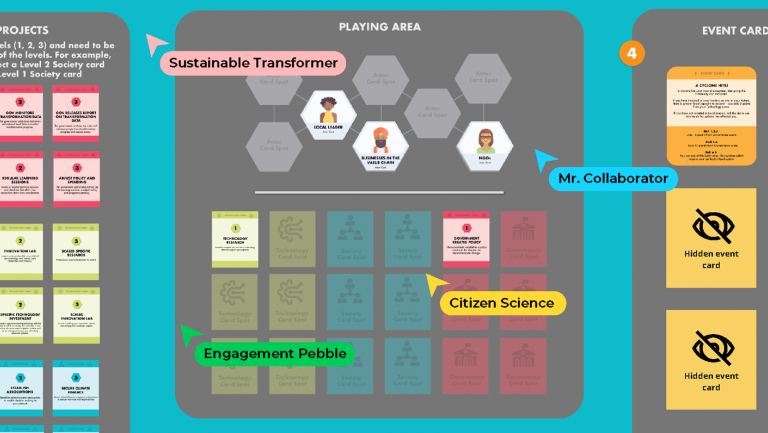Sign up for our monthly newsletter

How to set terrifying goals (and then go after them)
At ThinkPlace we try to dream big. You have to when your goal is to work every day to design for a better world.
We’ve adopted the United Nations 17 Sustainable Goals as our guiding principles. They include lofty aims such a “Zero hunger” and “No poverty”.
But when your goals are so big, how do you stay motivated? How do you stay on track?
At a leadership and strategy retreat outside Canberra recently, some of our designers were lucky to get some advice from an expert in thinking big -- Olympic Gold medallist Alicia Coutts.

Coutts is a legend in the pool. At London in 2012 she became one of only three Australians to win five medals at an Olympic Games (the other two being Ian Thorpe and Shane Gould).
At the 2010 Commonwealth Games in Delhi she won five gold medals and was chosen to carry Australia’s flag at the closing ceremony.
So when Alicia arrived at the two-day retreat to share some of her experiences she was met with a captive audience, fascinated not just by her accomplishments but by the tools and mindset she used to achieve them.
Here are her four big tips for setting ambitious goals and then making them into reality:
-
Have a clear sense of purpose
For Alicia every swim was a swim for her father – who passed away from cancer when she was just seven.
‘’My dad always told me I would go to the Olympics one day,” she said. “The day my dad passed away I had a race the next day. Everybody told me I didn’t need to go but I said: ‘I want to race for my dad’. I raced for him that day and won all my races. And then every time I ever raced for him after that I did it for him.”
This unwavering sense of purpose gave her a focus she admits was “laser-like”. Over a decade of constant sacrifice she never deviated from it. To make an Olympic team for her dad. It was her North Star.
-
Have a dream that’s big enough to scare you
When selected for her first Olympic team in 2008 Coutts was surprised. She was also thrilled just to be there. She made the final but never expected any more than that. Belief came gradually after that as her performances improved. And after swimming encouragingly well at the Pan Pac games in 2010 she went to Delhi a few weeks later and surprised everybody – winning five Commonwealth Games golds. On the final day of those games, in the athlete’s dining hall, she sat down with her coach and had just one question on her mind.
“Should we go for it?”
She meant going for Olympic Gold. And that meant setting a target she had never dared countenance before. A target that scared her.
“If you really believe you can win Olympic Gold then everything needs to change,” her coach told her. The goalposts had abruptly shifted.
“It wasn’t until then that I thought I could win an Olympic medal,” she said. “From that moment on my mindset was completely different. I had gone from ‘playing to play’ to a new mindset of ‘playing to win’.”

-
It all starts today.
After a huge meet, athletes are exhausted. They have completed a process they have worked towards for years. In a life where you seldom get a break from the rigours of training and competition this is the one time you can actually take a breather.
Coutts chose something else.
“Once we made that decision to go for it, I started straight away,” she says. “I was back in the pool the next morning, working harder, training longer and getting stronger. I added running, I added hundreds of sit-ups and core exercises. The Olympics were years away but I knew that if I wanted to realise this goal that scared me so much I couldn’t waste a day.”
-
Success is never static. It moves.
When your circumstances change your goals can change also. But the ferocity with which a champion pursues them will remain.
In late 2014, Coutts fell while playing with her dog and tore the labrum in her shoulder. The injury made swimming extremely painful. It threatened to end her career. Coutts found herself facing a dilemma – she could either have surgery and retire immediately, knowing she had already achieved her goals of reaching an Olympics and winning gold.
Or, she could put off surgery and train through the pain – day after day – swimming more than two million strokes through the physical pain of her injury as she battled to make another games squad.
Of course, she took the second option, but arrived in Rio knowing that success had taken on a different meaning for her.
“I ended up finishing fifth in that race,” she says. “But I had not a second of regret about it. I knew I was finishing my career and I just felt so proud that I had fought and fought and finished it the way I wanted to: in the pool, at the Olympics. That felt like winning to me.”






